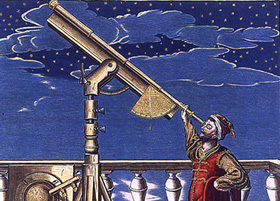In the waking state Langland describes himself as confused, and socially maladjusted, being unwilling to behave with proper subservience to his betters. Given his argumentative nature this is easy to believe. Some translations now include a disputed passage in which Reason upbraids him for his useless, lazy life style and suggests a variety of occupations he could follow. Langland justifies himself with a range of excuses, and it is from this passage that some scholars have made deductions about how he lived. One of the careers he might have followed, a clerical one, is dismissed with the claim that it has been so debased that it is not worth following at all. Other profession are equally debased.
"But bonded labourers' boys are now bishops,
And bastards' bairns are ordained archdeacons,
And knighthoods are sold to soap-sellers's sons
While Lords's sons labour and must pawn their lands
To fight our foes and defend the realm,
Protecting and caring for the commons and the King.
And monks and nuns, who should maintain the needy,
Have acquired land from knights and ennobled their kin,
While the patrons of parishes, even popes, despise
True blood and install sons of Simony instead;
Holy living and charity have long since been lost
And will not be found till the world is reformed.
So I beg you, forbear to upbraid me, Reason."
Reason won't buy the argument. Langalnd gives in and goes to church repenting.
In church he quickly falls asleep again and encounters an 'unsubstantial creature' (without tongue or teeth) who turns out to be ANIMA, the soul.
Anima has different names, each for one of the functions it carries out from time. Thus Thinking is one job Anima does, and Loving is another. The Dreamer makes a cheap joke about Anima having more titles than a bishop and gets accused of being a knowledge-seeker, wanting to know more than is good for him.
Here is more of Langland in self-analysis mode. He is aware of constantly wishing to understand the world around him but he recites all the arguments that condemn him. So there is a long section - repetitive and heavily anti-clerical - showing how the pursuit of knowledge leads to pride and the inability to grasp or explain simple truths. Doctors of Divinity would do better to speak of the Ten Commandments. Once again, Langland (though it is mostly Anima who is speaking at this point) mixes images from nature with assaults on his prime targets.
"And for an example, see how on trees in summer time
Some boughs bearing leaves and others bearing none,
There is some sickness in the root of such sort of trees;
So parsons and priests and preachers of Holy Church
Are the root of the right faith to rule the people;
But where the root is rotten, Reason knows the truth,
Shall never flower nor fruit grow nor fair leaf be green."
The money-grubbing motive that Langland ascribes to corrupt priests is the antithesis of Charity, which becomes a core theme as the story develops. Charity is portrayed as a person, and described by his behaviour.
"He's glad with all who're glad and good to all wicked And loves and lends help to all that our Lord made. He curses no creature and he can harbor no anger, And has no liking to lie or laugh men to scorn."
The discussion is wide-ranging, with a great many examples of what Charity does or does not do. Langland digresses sometimes in a way that is hard to follow. Charity, for instance, is self-denial and putting up with misfortune - the opposite of standing up for oneself. There is a delightful passage in which legendary saints who were miraculously fed show restraint in their demands.
"Yet once Egide called an hind to him, And the milk of that mild creature sustained him after. Yet he did not have her daily to decrease his hunger, But seldom and at special hours, as the story teaches."
One of the finest lines relates to the clothing in which Charity may be seen.
"In a friar's frock he was once found, But that was far back in Saint Francis's lifetime; In that sect he has since, seldom been witnessed."
Lack of Charity is also seen in people who have great wealth but still seek more. Their pointless behaviour is;
"Like one who filled a tun in a fresh river, And marched forth with it to moisten the Thames."
Lack of Charity is blamed again in a passage claiming that 'the world is out of joint'.
"Shepherds and shipmen with their sheep and vessels Saw by the sky what should follow, They warned men of winds and weathers often."
"Tillers who tilled the earth told their masters By the seed they sowed what they should harvest, And what to lend, what to live by; land was so faithful. But now the folk fail on the flood and in the valleys - Shipmen and shepherds, sowers and reapers - And no creature can tell one course before another. Astronomers also are at their wit's end. They calculate the elements but the contrary confronts them."
Falling standards in scholarship are also condemned and the comment on 'masters of divinity' is that if they were examined;
"They should fail in philosophy and in physics both."
Langland then reverts to his religious theme.Read about it by clicking on SAVED or go back to the beginning by clicking on HOME
SUBSERVIENT TO HIS BETTERS
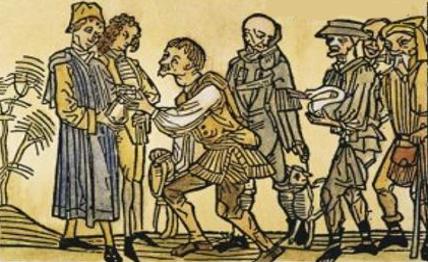
SIR SOAP-SELLERS SON
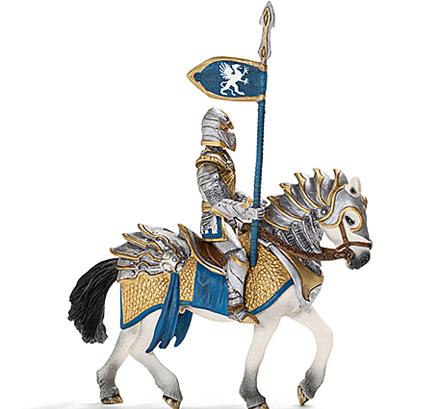
ANIMA CAN PERFORM MANY FUNCTIONS
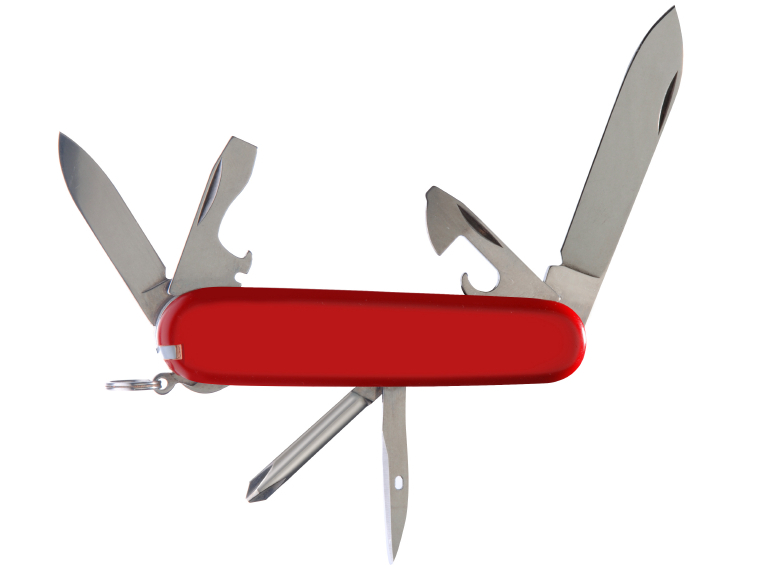
WHAT DOCTORS OF DIVINITY SHOULD TEACH
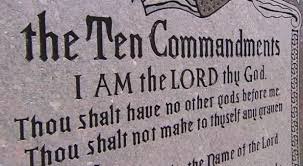
SOME BOUGHS HAVE LEAVES. SOME DON'T
A PROPHETS FED BY RAVENS
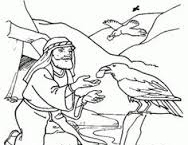
ASTRONOMERS ARE AT THEIR WITS END
